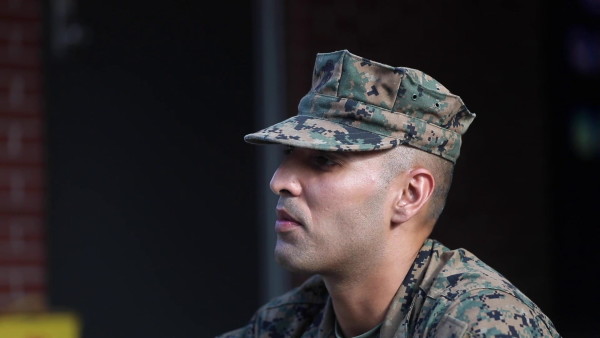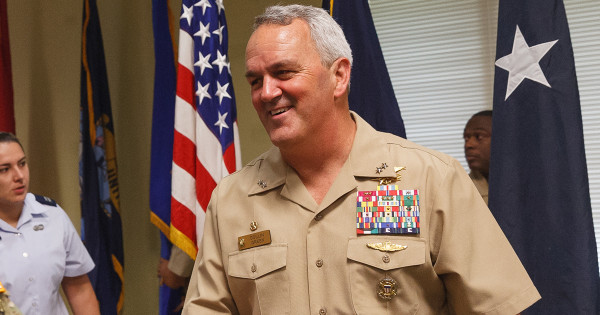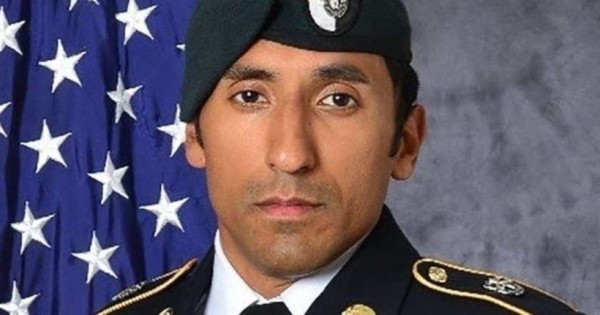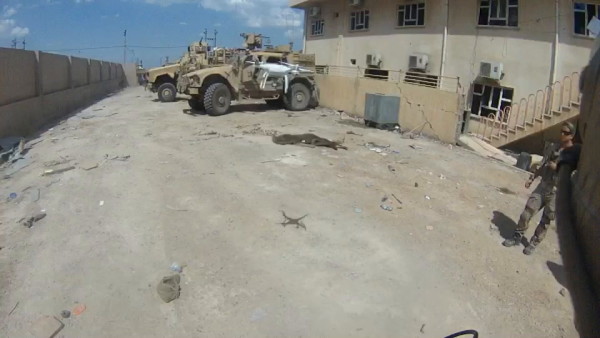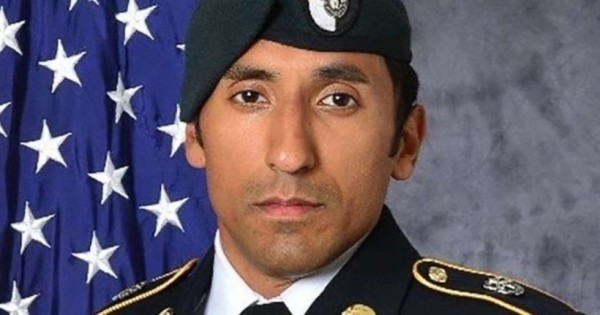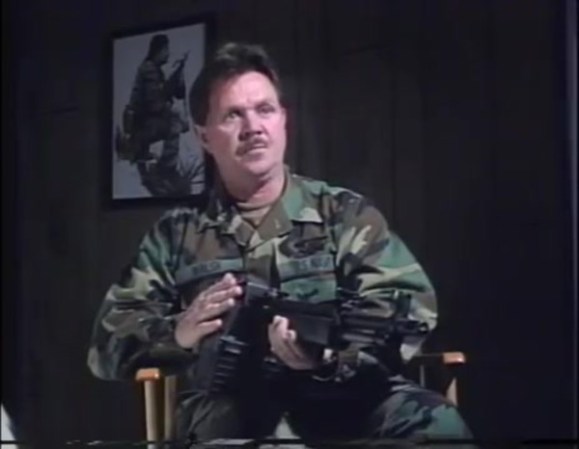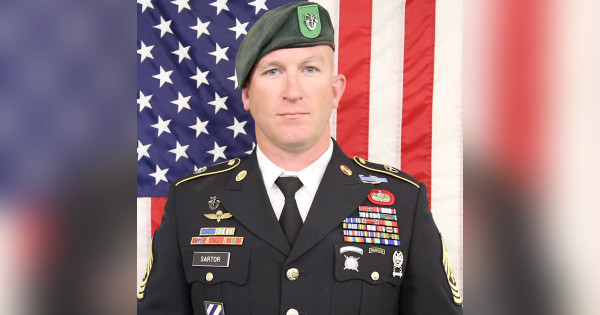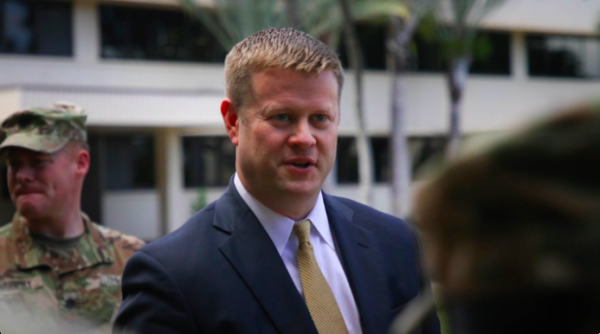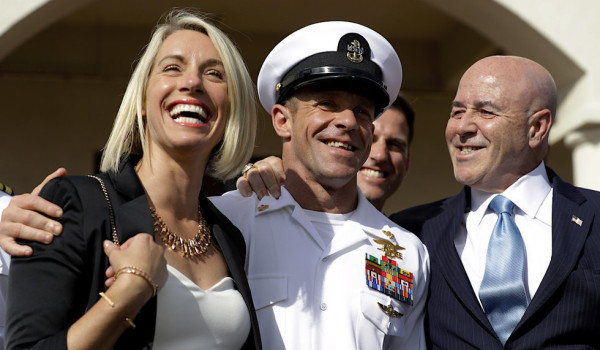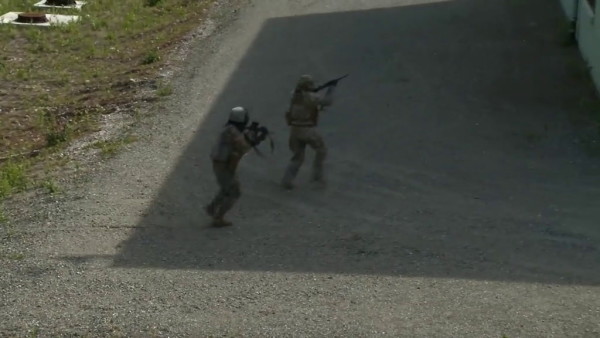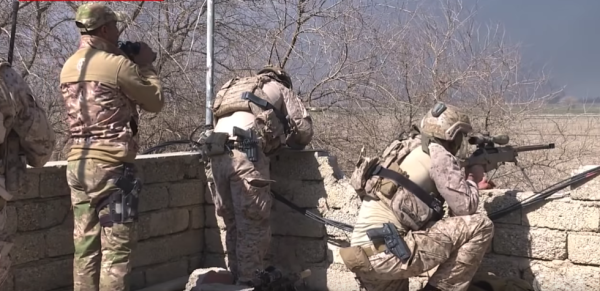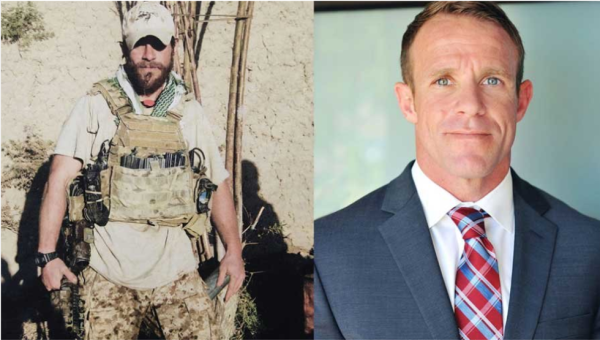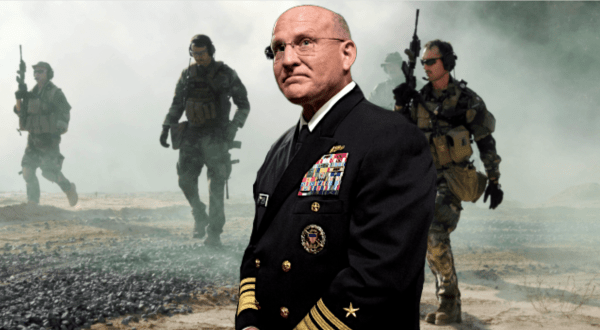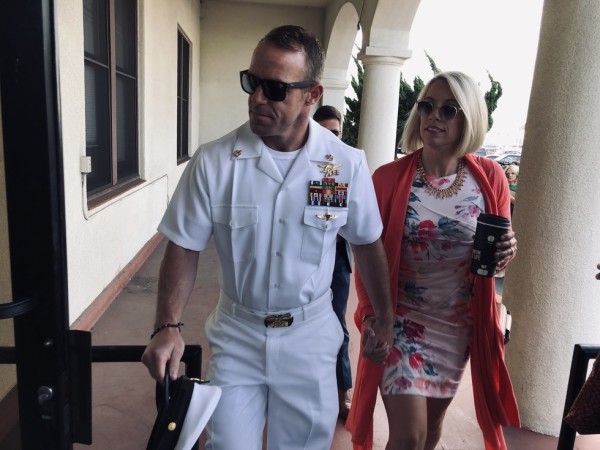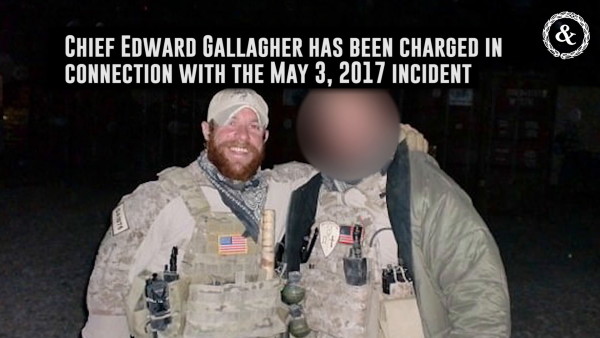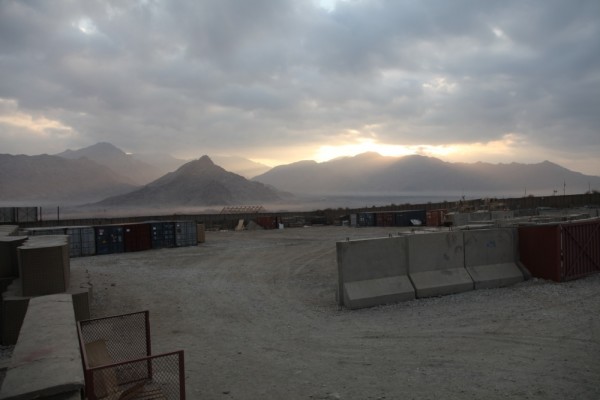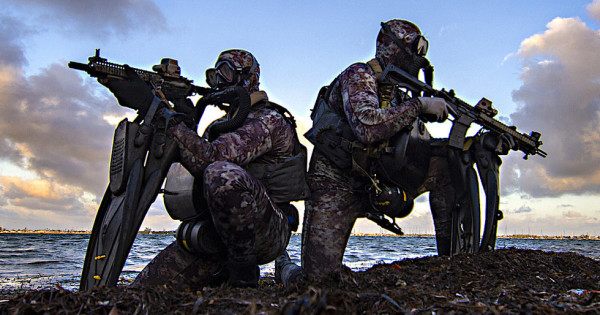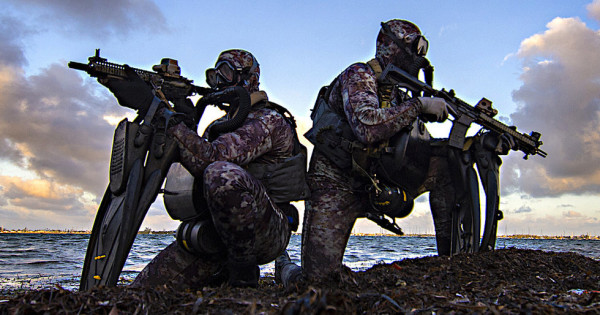Navy SEAL-turned-congressman Rep. Dan Crenshaw (R-Tex.) believes the United States should maintain a permanent military presence in Afghanistan similar to bases in former war zones such as Germany, Japan, and South Korea in order to prevent terrorist groups from plotting the next 9/11-style attack on U.S. soil.
Speaking at a veterans workshop hosted by Rep. David Trone (D-Md.) in Frederick, Maryland on Thursday, the Texas Republican said policy-makers must first do a better job of explaining to the American public what its objectives are in Afghanistan.
“We’re not explaining that if we let our enemies have the operational space they will commit another 9/11,” Crenshaw said. “This will happen. If we vacate Iraq in 2011 you will get ISIS. I’m worried about Syria at this point as well. We are leaving a small contingent of special operations forces there it sounds like. That’s important.”
Rep. Dan Crenshaw, R-Texas, left, listens as Office of Management and Budget Acting Director Russell Vought testifies before the House Budget Committee on Capitol Hill in Washington, Tuesday, March 12, 2019, during a hearing on the fiscal year 2020 budget
(Associated Press/Susan Walsh)

Crenshaw’s comments came in response to concerns from one audience member — an immigrant from Afghanistan who said he fought the Soviet Union during its invasion of the country in the 1980s and whose son is currently working with the U.S. military there now — who said he was opposed to the U.S. engaging in peace talks with the Taliban
Though American diplomats said in September they were nearing on a peace deal with the Taliban, President Donald Trump ended the negotiations later that month after the insurgent group launched an attack in Kabul that killed U.S. Army Sergeant 1st Class Elis A. Barreto Ortiz.
While Crenshaw said he understood the audience member’s concerns, the former SEAL said the U.S. needs to keep talking with the Taliban to accomplish its mission in Afghanistan. First, Crenshaw said, policy makers need to be clear on what that mission is.
“We have to answer certain questions about why we’re there and what our mission is,” Crenshaw said. “Is it prevention? Is it deterrence? Is it defeat? Is it a little bit of all three? And we haven’t done a good job answering that question for the American people for a very long time … which is why there’s this war fatigue.”

U.S. Navy SEAL Lieutenant Commander Dan Crenshaw, in Afghanistan, 2012.(Public domain via Wikimedia Commons)
The congressman, who lost his right eye after being injured by an IED blast during a 2012 deployment to Afghanistan, said that he favored an ongoing troop presence similar to other large U.S. military forces left stationed around the world in the aftermath fo World War II.
“We’re not still in World War II and yet we’ve had troops in Germany and Japan ever since then,” he said. “No one says that we’re still fighting the Korean War, but we never left. So why is public opinion different there? It doesn’t really make sense and we haven’t done a good job explaining that part of the debate to people.”
Rep. Elaine Luria (D-Va.), who was also in attendance at the workshop, responded to the audience member that while the U.S. plans on reducing its presence in Afghanistan from its current strength of 14,500 troops to 8,600 troops at some point in the future, there’s still no clear timeframe for accomplishing that drawdown.

